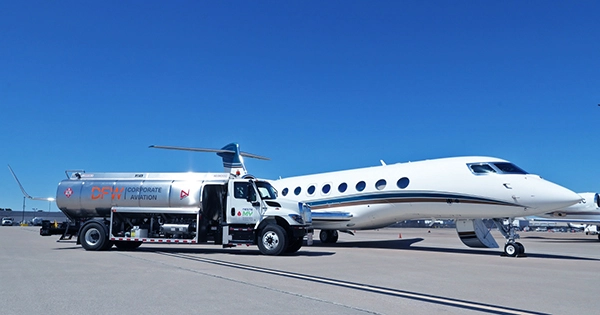Cooking oil might be the future of aviation fuel. An airport in Dallas is converting waste oil from over 200 restaurants’ fryers into sustainable aircraft fuel, a method that might drastically reduce the environmental effect of the world’s over 150,000 flights every day. The concept, devised by Dallas Fort-Worth International Airport, is not only an excellent answer for the amounts of garbage generated by eateries, but also a fuel choice that Airbus has just shown in a flight.
“We create a lot of garbage, a lot of unwanted things that have to go somewhere,” DFW Vice President of Environmental Affairs Robert Horton said, according to 5NBC/DFW. “What we’re trying to do is figure out a method to get rid of it without having a negative impact.” Sustainable aviation fuel (SAF), which is generated from cooking oil and waste fats, has been hailed by oil giant BP as a major step toward more environmentally friendly travel. The energy-to-weight ratio of jet and aircraft fuel is extraordinarily high, and developing a sustainable replacement that does not release CO2 into the environment is no easy task.
Cooking oil is refined into a synthetic aviation fuel by eliminating oxygen and other chemical wizardry; nevertheless, because airplanes cannot presently rely completely on synthetic aviation fuel, it is combined with regular gasoline to make it acceptable for flight. SAF permits regular planes to fly with roughly 80% less emissions after it is completed, including those emitted during their construction. Unfortunately, it doesn’t smell as wonderful as friers — in fact, it has no scent at all.
In another remark, Pratik Chandhoke, Technical Services Manager of Renewable Aviation at Neste US, claimed, “It does not smell like french fries at all.” “When you look at the liquid itself, it’s as transparent as water and has no odor.” By 2030, the airport intends to have made its whole process carbon-neutral, serving as a pilot test location for the rest of the aviation sector. Aviation now contributes around 2% of total world emissions, but this is increasing, and as space tourism gains traction, sustainable fuel options are becoming increasingly important. “They’ve realized that aviation and airlines play a significant role in global emissions,” Chandhoke remarked.
















